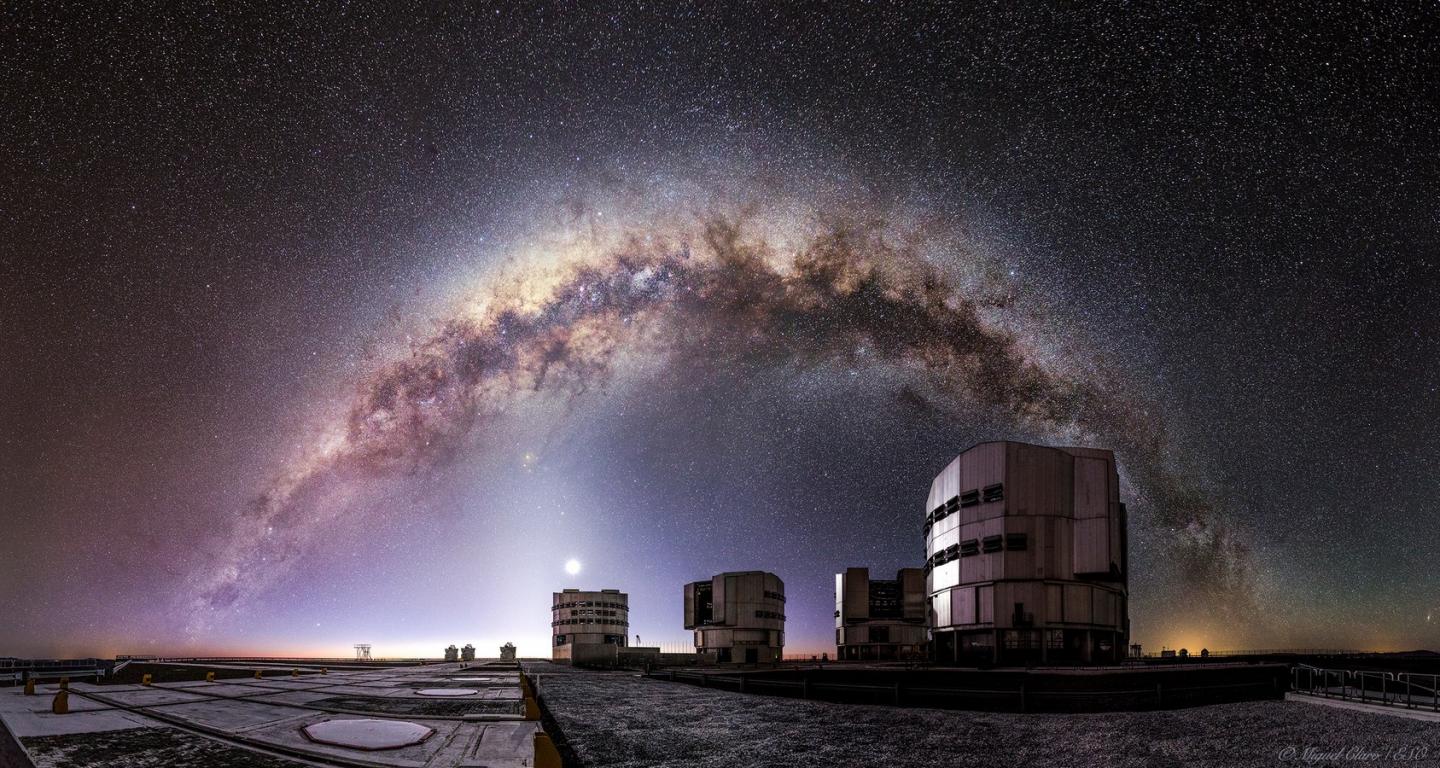
Credit: M. Claro/ESO.
Until now, Europe has had two major collaborative networks for ground-based astronomy, one in the optical wavelength domain and the other in the radio-wave domain. OPTICON and RadioNet have now come together to form Europe’s largest ground-based astronomy collaborative network. Launched with funding to the tune of €15 million under the H2020 programme, the project aims to harmonise observational methods and tools, and provide access to a wider range of astronomy facilities.
As our knowledge of the Universe advances, astronomers increasingly need a range of complementary techniques in order to analyse and understand astronomical phenomena. As a result, the European Union has decided to bring together the optical and radio networks OPTICON and RadioNet, who have successfully served their respective communities over the past twenty years.
With €15 million in funding from the European Commission’s H2020 programme, the European astronomical community will now benefit from the formation of Europe’s largest ground-based astronomy network: the OPTICON-RadioNet PILOT (ORP), which brings together some twenty telescopes and telescope arrays.
The ORP network is intended to harmonise observational methods and tools for ground-based optical and radio astronomy instruments, and provide researchers with access to a wider range of facilities, building on the success and experience of the OPTICON and RadioNet networks.
The new programme will make it easier for the astronomy community to access these infrastructures, as well as provide training for new generations of astronomers.
According to the management team, « it is very exciting to have this opportunity to further develop European integration in astronomy, and develop new scientific opportunities for astronomy research across Europe and globally. »
The ORP will in particular foster the development of the booming field of what is known as multi-messenger astronomy, which makes use of a wide range of wavelengths as well as gravitational waves, cosmic rays and neutrinos. Removing barriers between communities by harmonising observation protocols and analysis methods in the optical and radio domains will enable astronomers to work better together when observing and monitoring transient and variable astronomical events.
Astronomers from 15 European countries, Australia and South Africa, as well as from 37 institutions, have already joined the ORP consortium. It will be coordinated by the French Centre National de la Recherche Scientifique (CNRS), which runs and contributes to several optical and radio telescopes, the University of Cambridge (UK), and the Max Planck Institute for Radio Astronomy (Germany).
In Belgium, the network involves the Institute of Astronomy at KU Leuven in charge of developing new instrumentation for the Very Large Telescope Interferometer (VLTI, Chile) and coordinating one of the seven European VLTI expertise centers. The VLTI is a major European observatory at the forefront of astronomical research.
With the new ORP funding, the Institute of Astronomy will develop a new VLTI observing mode dedicated to exoplanet research, support the VLTI expertise centres network’s activities, and gather the whole VLTI community in Leuven in 2023. “We are excited to be part of this new ORP network and to contribute to the development of astronomical research and community in Europe” says Denis Defrère, associate professor at the Institute of Astronomy.
The management team includes Jean-Gabriel Cuby, ORP project coordinator at the CNRS National Institute for Earth Sciences and Astronomy, and Gerry Gilmore, Professor at the University of Cambridge (UK) and Anton Zensus, Director of the Max-Planck Institute for Radio Astronomy (Germany), as ORP scientific coordinators for OPTICON and RadioNet respectively.
This project has received funding from the European Union’s Horizon 2020 research and innovation programme under grant agreement No 101004719.
###
Media Contact
Elisa Nelissen
[email protected]





